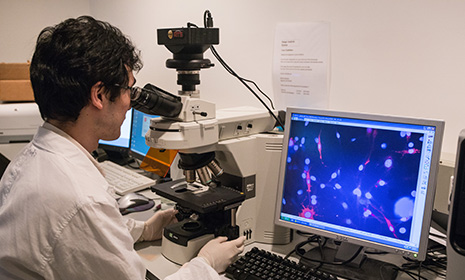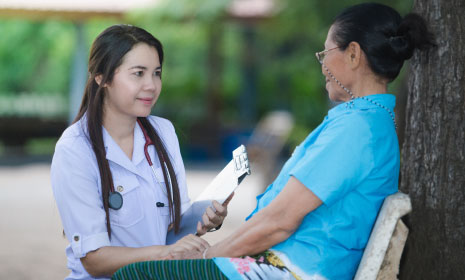FAMILY: A Jockey Club Initiative for a Harmonious Society “60% of Hong Kong families receive a passing grade on health – 10-point Healthy Living Index (HELI)”
The Hong Kong Jockey Club Charities Trust funded HK$250 million and in collaboration with the School of Public Health of The University of Hong Kong, ?FAMILY: A Jockey Club Initiative for a Harmonious Society? project (FAMILY project)1 devised a health index named the ?10-point Healthy Living Index? (HELI) for the public to easily assess their health status. The HELI consist of two categories ? (1): healthy lifestyle (smoking habit, drinking habit, physical activities and vegetable and fruit intake); and (2): healthy status (Body Mass Index (BMI) and blood pressure).
From March 2009 to March 2011, the FAMILY Project successfully interviewed more than 20,000 Hong Kong families, gathering data regarding people?s lifestyle, eating habits, health status and relationships between family members. In the survey, 8,481 families (including 18,906 individuals aged 15 years or above) were randomly selected from the general population. The average family size is 2.7 persons.
Personal and Family Healthy Living Index
According to a 10-point scale, the study finds that 64% of Hong Kong people scored 6 points (pass) or above, nearly 24% of Hong Kong people received at least 8 points (very healthy). The mean score of Hong Kong people is 6.11. On a family basis, 60% of families scored at least 6 points, but less than 10% of families reached 8 points. The mean score of Hong Kong families is 6.00. Moreover, the study found that 90% of Hong Kong people have inadequate vegetable and fruit intake and 30% of Hong Kong people were considered obese.
Family Health, Happiness and Harmonious
From the preliminary result, in terms of health status, our study found the BMI of Hong Kong people to be below standard. According to the WHO guideline for Asians, nearly 30% of people in Hong Kong were considered obese (BMI ? 25kg/m2). Regarding blood pressure, 34.7% of Hong Kong people were considered pre-hypertensive (at marginal status) and 28% were considered to be in the 1st-stage of hypertension. Regarding lifestyles, 81.5% of Hong Kong people were non-smokers or have quit smoking for over 10 years; 94.6% were nondrinkers or non-problem drinkers. However, the amount of physical activity and vegetable and fruit intake were severely inadequate: only 29.7% of Hong Kong people have moderate-intensity physical activities (2.5 hours of per week) and only 10% have adequate vegetable and fruit intake (5 servings per day).
In addition to our main study, a sub-study showed that half of the 5,267 participants walked more than 8,000 steps per day, which could be considered as a basic requirement. To improve the HELI score, everyone in the family should work together to achieve family health, do more physical activities and eat more vegetables and fruits. Healthy people should also promote healthy lifestyles in their families.
Mr Douglas So, Executive Director, Charities of The Hong Kong Jockey Club says, ?We believe prevention is the best cure, that?s why the Jockey Club has initiated the FAMILY project. We hope to raise awareness of the importance of family life in hectic city like Hong Kong, so as to foster healthy family lifestyle. We encourage everyone to exercise regularly with their families and develop healthy eating habits.?.
Professor Lam Tai-hing, Sir Robert Kotewall Professor in Public Health, Director of the School of Public Health and Principal Investigator of the FAMILY Project sincerely thanks the families for their participation in the baseline household survey and strongly encourages families to participate in the 2nd household survey launched in July 2011. Professor LAM points out that, ?This is the first study in Hong Kong related to family health, happiness and harmony?.
Regarding inadequate physical activity, Professor Lam suggests that people should try to walk more even if they do not have time for moderate physical activity. For example, getting off at an earlier bus stop and walking home with their families. Walking for half hour can contribute to an energy consumption of 300 ? 400 Kcals. According to the National Institutes of Health, daily expenditure of 300 ? 400 Kcals can lead to a 10 ? 13 lbs reduction of weight in 6 months. Regarding inadequate vegetable and fruit intake, Professor Lam suggests that in order to satisfy the minimum standard of 5 servings of vegetable and fruit per day set by the Department of Health, prepare fruits that are ready-to-eat (such as bananas and apples) or choose different kinds of fruits and vegetables to eat (for example: vegetable clay pot). Drinking fresh fruit/vegetable juice (e.g. five green juice) is also a good alternative. He emphases that 2 servings of fruit and 3 servings of vegetables is not a compulsory combination, other combinations are feasible (for example, 3+2, as consuming fruits is easier than consuming vegetables) Professor Sophia Chan, Research Director of the School of Nursing and Co-Investigator of the FAMILY project encourages people to use the ?HELI Interactive Calculator?2 with their families to calculate their individual and family HELI scores. She would also like to take this opportunity to invite the public to read the <
FAMILY Project cohort study: A population-based household survey
To help build a more harmonious society, The Hong Kong Jockey Club Charities Trust has invited the School of Public Health of The University of Hong Kong to collaboratively launch a project entitled ?FAMILY: A Jockey Club Initiative for a Harmonious Society? (FAMILY Project?) with a HK$250 million funding. The FAMILY Project is based on the premise that traditional Chinese values of cherishing family relationships can still be adapted to modern day life, and can help promote the 3Hs ? Health, Happiness and Harmony ? across generations. From March 2009 to March 2011, the FAMILY Project cohort study: A population based household survey was conducted. The survey explores a wide variety of topics related to Health, Happiness, and Harmony (3Hs). Besides, the 2nd round household survey has been started, in a period of 24 months.
Useful Information
-
FAMILY: A Jockey Club Initiative for a Harmonious Society
Website: http://www.family.org.hk -
10-point Healthy Living Index Interactive Calculator
Website: http://healthyindex.family.org.hk -
<
>: jointly organized by the School of Public Health of HKU
and The Hong Kong Council of Social Service
Appendix I
FAMILY: A Jockey Club Initiative for a Harmonious Society Cohort Study Press Conference ?60% of Hong Kong families receive a passing grade on health ? 10-point Healthy Living Index (HELI)?
Fact Sheet
Background
The Hong Kong Jockey Club Charities Trust funded HK$250 million and in collaboration with the School of Public Health of The University of Hong Kong, ?FAMILY: A Jockey Club Initiative for a Harmonious Society? project (FAMLY project) has completed the first phase of the FAMILY Project cohort study: A population-based household survey from March 2009 to March 2011. The survey covered a variety of topics including family health, happiness and harmony indexes. A second phase household survey began in July 2011, focusing on participants of the baseline household visit.
Objectives
This survey is to investigate the health, happiness and harmony status of Hong Kong ?family units?, with each ?family unit? represented as a group with a core family and families of its first degree relatives.
Household Survey Period
The survey focuses on the family as a unit. It is preventive in nature, rather than trying to rectify
family problems. The survey will use a public health approach that brings together various scientific disciplines such as medical, behavioural and social sciences (including psychology and social work), epidemiology, biostatistics, and environmental science. It will also link with social practices, medicine, education, journalism and the media so as to identify the source of domestic problems and derive a preventive response that is complementary, wide-reaching, pervasive, and cost-effective. Government and other related organisations will be able to use the information and evidence to formulate long-term public policies and programmes.Scope and duration:The following data will be collected: personal and family particulars, lifestyles (such as eating and physical activities), physical and psychological health, happiness index, family harmony index, religious beliefs, neighbourhood relationships, work status, and use of medical and social resources, etc.The survey will last for 6 years. The first household visit was conducted from March 2009 to March 2011. More than 20,963 households (with 47,696 individuals) were successfully enumerated. The second household visit started in July 2011 to re-visit the households, and expect to complete in 2 years.Sample selection:A total of 20,963 households have been enumerated. In order to reflect the situation in different stages of life span and to promote community development, other than households from the general population, 5 targeted populations will be sampled: 1) newly?weds; 2) people with recent health shocks; 3) households with Primary One students living in Sham Shui Po, Kwun Tong, Hong Kong East or Hong Kong South; 4)
households living in Tung Chung or Tin Shui Wai; and 5) people living in private or public housing in Tseung Kwan O.Research methods:During the six-year survey period, fieldworkers will conduct 2 household visits and conduct in-between telephone and web-based follow-ups every 3-6 months. Data collected will be treated in strict confidentiality.All participating households will become members of the ?1% Club? eligible for all privileges, including free health information services; free access to an e-health platform which can generate real-time personalised health assessment based on the personal health data given (e.g. blood pressure index); and receive updates of the survey?s progress on a regular basis. Participants can also call the FAMILY healthcare hotline 8100 0974for medical advice on their personal health.Intervention ProjectsFive intervention projects were developed, in partnership with 4 non-governmental agencies (NGOs) and the Department of Health to achieve the ultimate goal of promoting the 3Hs in the families.The intervention projects were designed in accordance with public health principles to be cost-effective and sustainable. Each intervention was theory-based with clearly defined and achievable objectives, was short in duration (four to five sessions) and was brief (two to three hours a session). Participants were encouraged to practise key parenting skills at home. In order to enhance the programme?s sustainability, the programmes were delivered by experienced community social workers.Pilot studies of the five intervention projects with the 2 major objectives of enhancing family and parent-child relationships were conducted in 2009 and early 2010 in 13 different districts of Hong Kong. The targeted participants included families with pregnant women and children in primary school. Between 100 and 150 families were involved in each project. Changes in participants? behaviour and attitudes for the study-specific outcomes, as well as the interventions? effectiveness in enhancing the 3Hs, are being evaluated.With the positive results of the pilot intervention projects, two larger main studies were started, in collaboration with the Hong Kong Caritas and Hong Kong Family Welfare Society, with improved content, larger sample sizes and more districts in July, 2010.Starting from June, 2011, a new intervention project was launched in collaboration with the International Social Service (Hong Kong) to help strengthen resilience in new immigrant
families.The Intervention Team is actively working with different non-governmental agencies (NGOs) or social service agencies to explore the feasibility of launching different interventions programmes to meet the diverse needs of people in the community.Public Education ? Health CommunicationThe 3Hs message will be disseminated to the general public through various channels to raise their awareness of family values, enhance their communication and participation. Community-wide events will be held to promote the 3Hs and provide an opportunity for fostering relationships among family members.Through the use of different media tools, such as newspapers, magazines, the Internet, radio, television and advertisements, to promote positive attitudes towards the 3Hs and enhance public?s recognition and awareness of the message.The School of Public Health of The University of Hong Kong will conduct a cross-sectional telephone survey every 12 months to assess changes in behaviour among the general public and the effectiveness of the programmes in promoting family 3Hs. The first population-based survey, entitled ?Hong Kong Family and Health Information Trends Survey? (HK ? FHInTS), was completed in 2009 and 2010. Results were released in a press conference held on September 26, 2010. The results were widely reported by the mass media and have successfully aroused public?s awareness on the family 3Hs message.Training workshops, seminars and symposiums are being held, through experience sharing, social workers are trained to use effective communication strategies for promoting the 3Hs.A nine-episode ?Love Family? TV series produced by the Radio Television Hong Kong (RTHK) is one of the public education programmes, funded by The Hong Kong Jockey Club Charities Trust. The programme was broadcast on TVB Jade at 8:00pm Saturdays from January 23 to March 27, 2010. A ceremony was held on 17 January, 2010 at Times Square, Causeway Bay to announce the launch of the series.In collaboration with two NGOs, two community-based participatory projects ?Happy Family Kitchen? Project and ?Learning Family? Project have been initiated at district level with the aim of promoting family 3Hs through local organisations and agencies. An evaluation will be conducted to assess the effectiveness of community-based approach in promoting the family 3Hs message.A project-based learning programme with the theme of ?Green Family? is being conducted in partnership with 85 primary schools from six designated districts. A total of 18,000 P.4 to P.6 students and their families will be actively involved in the educational activities with the aim of obtaining a deeper understanding of family 3Hs.








.png)
